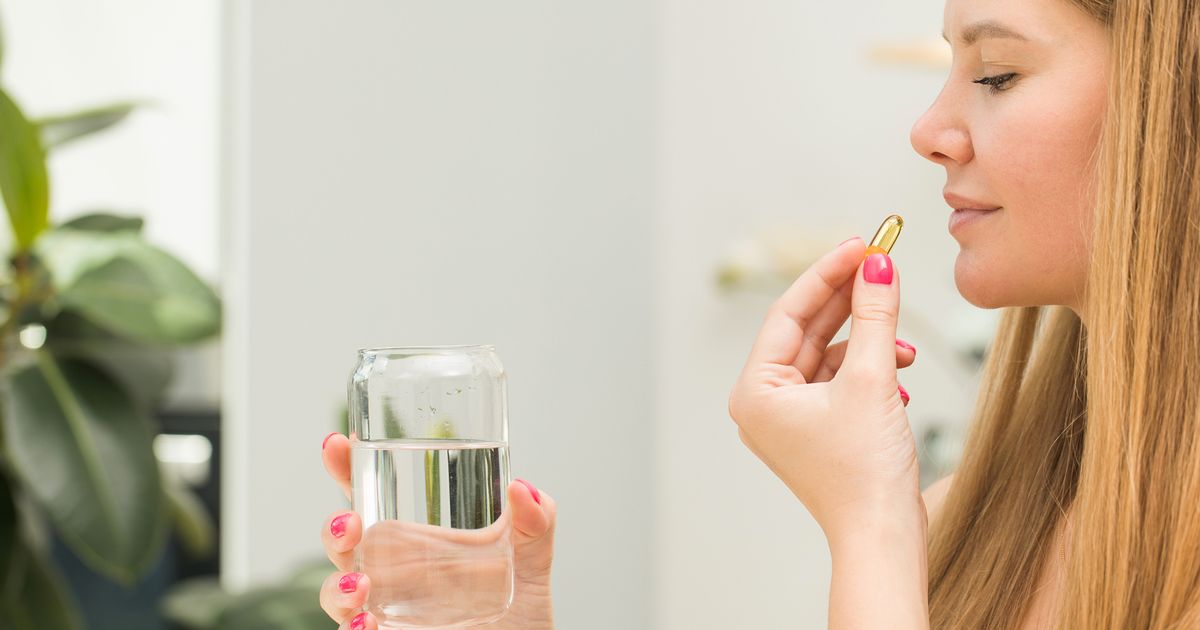Health officials have encouraged ‘everyone’ to take one supplement throughout the winter months The daily supplement keeps bones, teeth and muscles healthy(Image: iStockphoto/Getty Images)
The daily supplement keeps bones, teeth and muscles healthy(Image: iStockphoto/Getty Images)
After the clocks turned back by an hour last weekend, the sun now sets earlier each day. More of our evenings are spent in the dark – and glimpses of sunshine are few and far between.
Autumn is well and truly here, but health officials have issued advice to Brits about how to stay healthy during the colder months.
The NHS urges everyone to take a daily vitamin D supplement from October until March in order to keep our bones, muscles, and immune system healthy.
The NHS said in a post on X, formerly Twitter: “From October to March we can’t make enough vitamin D from sunlight, so to keep bones and muscles healthy, it’s best to take a daily 10 microgram supplement of vitamin D.
“You can get vitamin D from most pharmacies and retailers.”
Content cannot be displayed without consent
In a graphic on X, the NHS said: “During the winter months, everyone should consider taking a daily vitamin D supplement.”
Why do we need vitamin D?
Vitamin D, also known as the ‘sunshine vitamin’, is created by the body from direct sunlight on the skin when we go outdoors.
It helps regulate the amount of calcium and phosphate in the body. These nutrients are needed to keep bones, teeth and muscles healthy.
A lack of this vital vitamin could be behind a number of symptoms that many of us experience, such as bone pain or unexplained tiredness or fatigue, the NHS says.
Other symptoms include muscle pain, increased sensitivity to pain, a ‘pins-and-needles’ sensation in the hands or feet, muscle weakness in the upper arms or thighs, or muscle spasms, according to Yale Medicine.
 Between October and early March we do not make enough vitamin D from sunlight(Image: Getty Images)
Between October and early March we do not make enough vitamin D from sunlight(Image: Getty Images)
A deficiency in vitamin D can also lead to bone deformities such as rickets in children, and bone pain caused by a condition called osteomalacia in adults. But a daily vitamin D supplement can help to prevent a deficiency.
How much vitamin D do we need?
The NHS says 10 micrograms (μg), or 400 International Units (IU), is the correct vitamin D supplement dosage for most people.
Babies, up to the age of one year old, need between 8.5 and 10 micrograms of vitamin D a day.
The NHS urges people at high risk of not getting enough vitamin D, all children aged one to four, and all babies (unless they’re having more than 500ml of infant formula a day) to take a daily supplement throughout the year – not just in winter.
Food can also be a great source of this vitamin. According to the NHS, the best food sources of vitamin D include:
Oily fish like salmon, sardines and mackerelRed meatLiverEgg yolksFortified foods like some fat spreads and breakfast cerealsDietary supplements.

